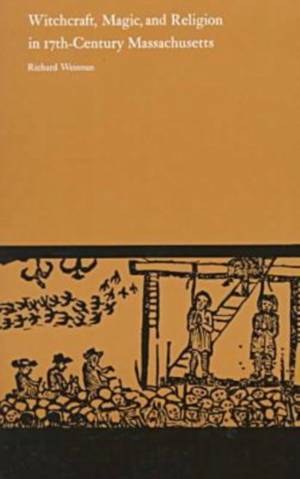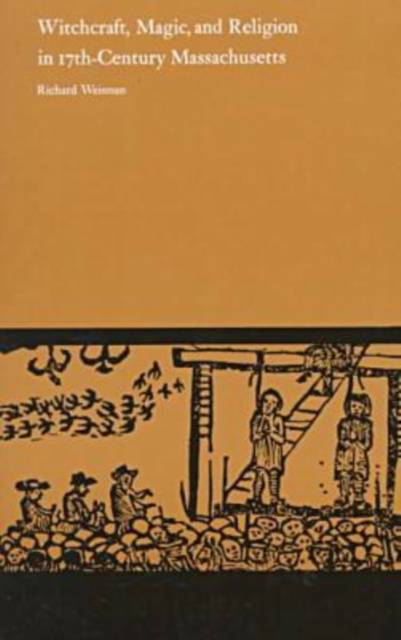
- Afhalen na 1 uur in een winkel met voorraad
- Gratis thuislevering in België vanaf € 30
- Ruim aanbod met 7 miljoen producten
- Afhalen na 1 uur in een winkel met voorraad
- Gratis thuislevering in België vanaf € 30
- Ruim aanbod met 7 miljoen producten
Zoeken
Witchcraft, Magic, and Religion in Seventeenth-Century Massachusetts
Richard Weisman
Paperback | Engels
€ 33,95
+ 67 punten
Omschrijving
The Salem witchcraft persecutions are one of the most well-known events in history, but there is more to the story. In this book, Weisman explores the social, political, and religious implications of witchcraft. He ventures outside of the usual studies of the Salem trials to provide a comprehensive understanding of 17th-century Massachusetts witchcraft as a whole. In the first section, an attempt is made to explicate the logic and meaning of the two major interpretive frameworks of witchcraft in terms of which the category was understood by inhabitants of Massachusetts Bay. The second and third sections of this study deal with the sources of support and resistance to collective actions against witchcraft prior to the Salem trials and during the Salem trials respectively.
Specificaties
Betrokkenen
- Auteur(s):
- Uitgeverij:
Inhoud
- Aantal bladzijden:
- 288
- Taal:
- Engels
Eigenschappen
- Productcode (EAN):
- 9780870234941
- Verschijningsdatum:
- 18/07/1985
- Uitvoering:
- Paperback
- Formaat:
- Trade paperback (VS)
- Afmetingen:
- 147 mm x 227 mm
- Gewicht:
- 399 g

Alleen bij Standaard Boekhandel
+ 67 punten op je klantenkaart van Standaard Boekhandel
Beoordelingen
We publiceren alleen reviews die voldoen aan de voorwaarden voor reviews. Bekijk onze voorwaarden voor reviews.








